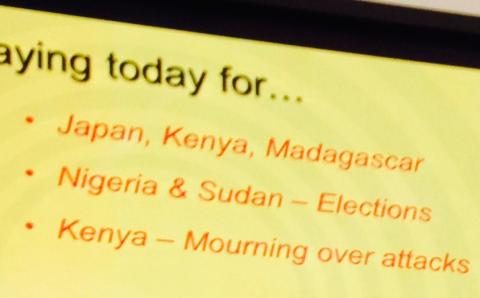Our Reformed understanding of stewardship begins with the notion that everything we have—time, talent, or treasure—is a gift from God’s hands. And we, in gratitude for these good gifts, seek to use them effectively and efficiently in service of the kingdom of God.
While we may acknowledge technology as one of the gifts God has given us for our work in the world, we do not always consider what it means to develop an attitude of stewardship in our use of these gifts. When we do, we tend only to think in terms of the limits we place on our use of technology—for example, the number of hours we should spend using television. Yet just as we would not subject our stewardship of time, talent, or treasure to such a truncated understanding, neither should we do so to our use of technology.
A Reformed understanding of the stewardship of technology begins from the same foundation as our broader view of stewardship—technology is a God-given gift mediated through the good gift of human culture and innovation. Stewardly use of these gifts does indeed recognize the effects of sin on our use of technology and the need for limits—the corruption of sin opposed to the kingdom of God cuts through every aspect of creation, including technology. As such, a healthy view of technology will adopt neither wholesale acceptance nor outright rejection.
A positive vision of stewardship ought to celebrate the ways that technology can be used in the service of God’s kingdom—in our individual, congregational, and communal lives.
Social media and the ubiquity of cell phones have dramatically changed the landscape of how we communicate with one another, and our churches are wise to adapt to this. Youth leaders can communicate effortlessly and instantaneously with large groups of students and parents. Our use of natural resources can be dramatically reduced by the simple act of digitizing the endless paper trail of council minutes and agendas. Not only do I now carry a Bible with me everywhere in app form, but I can also check my schedule in a moment, decreasing the likelihood that the suggestion “Let’s find a time to grab coffee” becomes only a half-hearted attempt at maintaining a relationship. We do not have to look far to find ways that God can call us to use technology in service of the kingdom.
Of course, our use of technology must be done with discernment. After a period of self-evaluation, I determined that my own use of Facebook was not aiding my discipleship journey. In fact, it was forming and shaping me as a whole in ways that run counter to my identity as a child of God—and so I deleted my account. This is not, however, a decision that everyone needs to or even should make. Like the way that we use our time, our money, and our abilities, our use of technology should be subject to God-given wisdom. We are right to ask tough questions about the values of the companies from whom we purchase our technology and to prayerfully consider how our use of technology points us and others toward or away from God.
The contemporary testimony Our World Belongs to God has this to say about our stewardship of technology: “Grateful for advances in science and technology, we participate in their development, fostering care for creation and respect for the gift of life” (par. 50). These guiding principles form the backbone of a stewardship of technology.
So perhaps we should challenge our deacons to encourage us to be good stewards not only of our time, talents, and treasure, but of our technology as well.
Web Qs
- What does Plockmeyer mean by “technology”? He mentions television and cell phones. What other things would you fit into that category? Make a list, then discuss the place technology really plays in our lives.
- What are bad uses of technology? What are good uses of technology? Where are our uses of technology questionable if not outright controversial?
- What does Plockmeyer mean by “stewardship of technology”? How can you be a good steward of your use of technology? For example, how much time should you spend watching television? And what should you be watching? Should you be using a computer or a cell phone? How? Should you be using your feet, a bike, or public transit more and your automobile less? Should you own a freezer?
- How should we advocate for the appropriate use of technology in our church? In our community? In society as a whole? What could we as Christ-believers specifically offer to that wider conversation?
- Should we do what Plockmeyer suggests and challenge our deacons to lead us in being good stewards of technology? Why or why not? List some specific ways deacons might be able to help us in this area of stewardship.
About the Author
Kory Plockmeyer is the pastor of Covenant CRC in Sioux Center, Iowa.








